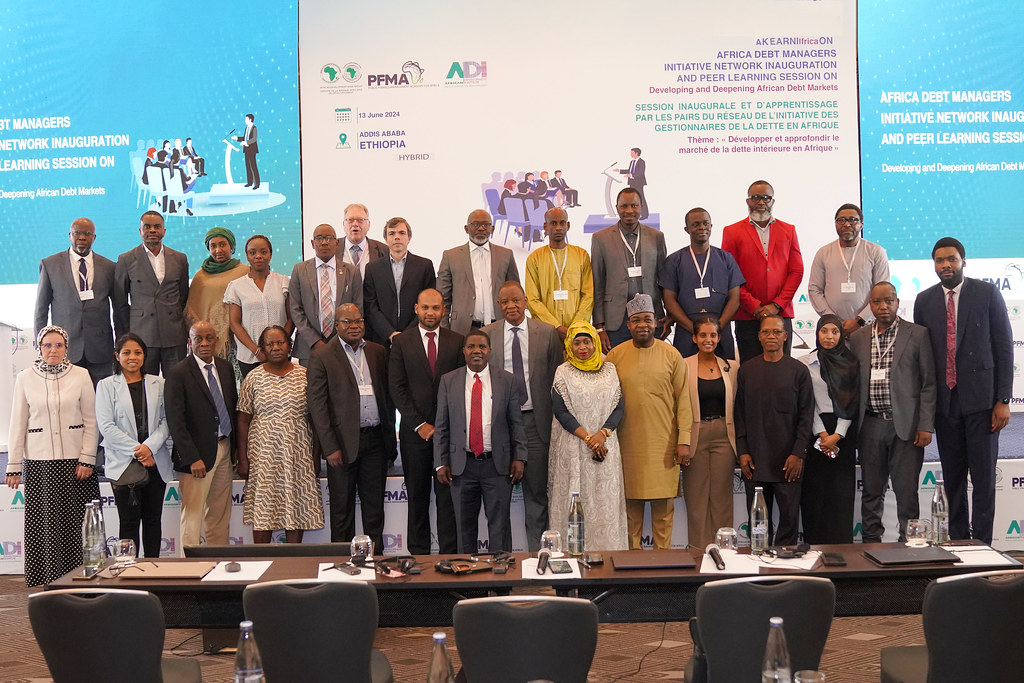In order to offer indigenous answers to Africa’s debt problems, the African Development Bank (AfDB) established the African Debt Managers Initiative Network (ADMIN).
This is even as it was revealed that six African nations are currently experiencing financial hardship, and 13 are currently at high risk of doing so. In a statement on Saturday, the bank declared the start of the programme to deal with the debt issue.
The inaugural peer learning session and inauguration, according to the release, were held in Addis Ababa with the theme “Developing and Deepening Domestic Debt Markets in Africa.” According to AfDB Director Coulibaly Abdoulaye, the network will offer specialised and indigenous solutions to the continent’s debt problems.
According to him, the network will also help African officials and institutions better manage their debt, which will enable them to address the urgent debt problems they face, bring macroeconomic stability back, encourage inclusive growth, and foster knowledge sharing among debt managers in the region’s member states.
Why are African nations taking on more debt?
Speaking about the causes of Africa’s debt, Eric Ogunleye, the director of the AfDB Institute, stated that African nations are becoming more indebted due to the growing need for funding for the development of infrastructure, the fight against poverty, the mitigation of climate change, and the resolution of insecurity.
He said that increasing debt susceptibility and inadequate debt management capabilities in many African nations had worsened macroeconomic results and impeded the ability of policymakers to respond effectively to shocks, aggravating debt distress in certain nations.
Ogunleye informed the audience, “There is, therefore, a growing need to strengthen debt management capacity in African countries.”
“As of 30 April 2024, 13 African countries are at high risk of debt distress and 6 are already in debt distress out of the 38 for which debt sustainability assessment data are available.”
“The external bondholders and creditors outside the Paris Club who deal directly with debtor countries now own a larger share of African debt; this high-cost debt imposes a significant debt servicing burden on African countries, averaging 18% of total government revenue,” the speaker said.
Collaboration in debt management
Johan Krynauw, a former director of debt management at South Africa’s National Treasury, also spoke and urged African nations to collaborate more in order to foster information exchange and provide mutual assistance with debt management concerns.
Numerous institutional efforts from outside the continent have been made in recent years to assist African nations. Krynauw stated, “The question is always why it did not work and why we still have problems with public finance and debt management today.
He stated that Africa now had the information, expertise, and experience to decide what is best for its individual nations. He said it was one of the motivations behind the initiative’s creation—to foster collaboration between public debt management in Africa.
Further insights
The AfDB did not identify which African nations were in financial difficulties at the time, but there have been worries about Nigeria’s debt load. Nigeria’s public debt profile increased to $110.48 billion, or around N162.81 trillion, following the World Bank’s recent approval of an additional $2.25 billion loan for the nation.
According to a recent The News Chronicles analysis, Nigeria’s foreign debt payment expenses have increased significantly, at 96% annually. The nation’s debt servicing and payments reached $2.19 billion by the end of May 2024, a significant increase from the $1.12 billion reported during the same time in 2023.



